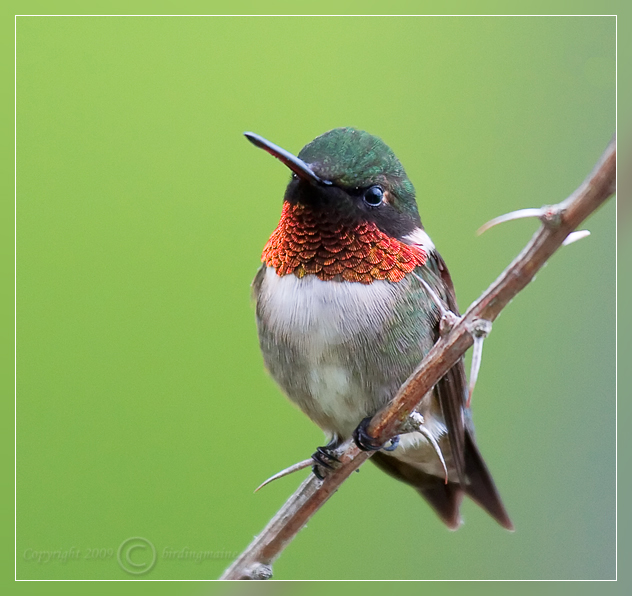Hummingbirds are birds that comprise the family Trochilidae. They are among the smallest of birds, most species measuring in the 7.5–13 cm (3–5 in) range. Indeed, the smallest extant bird species is a hummingbird, the 5-cm Bee Hummingbird. They can hover in mid-air by rapidly flapping their wings 12–80 times per second (depending on the species). To conserve energy while they sleep or when food is scarce, they have the ability to go into a hibernation-like state (torpor) where their metabolic rate is slowed to 1/15th of its normal rate. They are also the only group of birds able to fly backwards. Here are some interesting hummingbird pictures, facts and general information about hummingbirds.
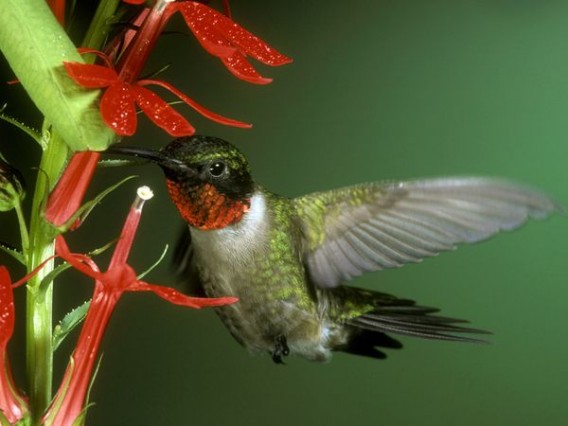
Hummingbirds are the tiniest birds in the world.
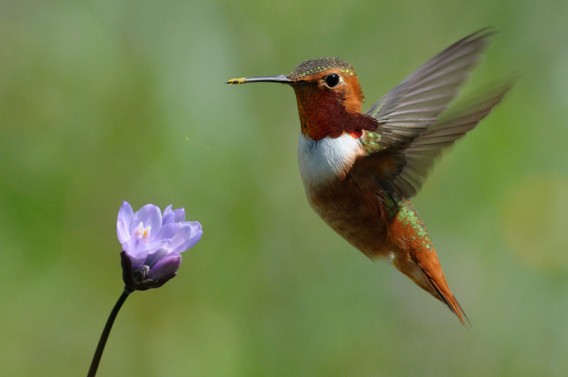
Hummingbirds can flash their bright colors, as well as hide them when needed.
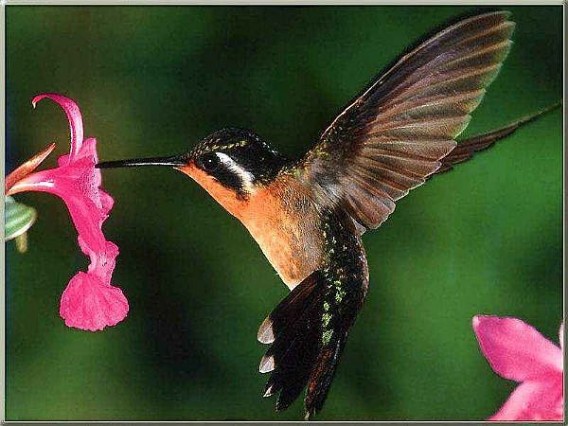
The bright radiant color on hummingbirds comes from iridescent coloring like on a soap bubble or prism.
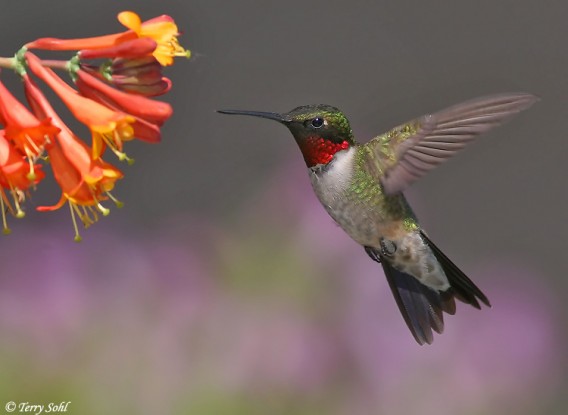
A Gorget is the bright flashing colored feathers of the hummingbird’s neck.
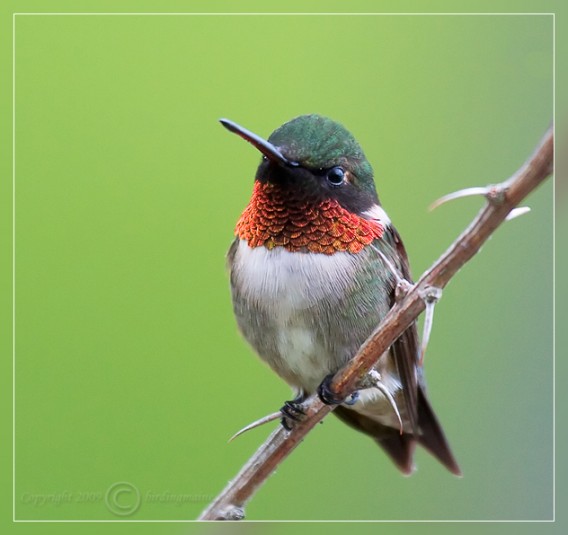
A hummingbird’s brain is 4.2% of its body weight, the largest proportion in the bird kingdom.
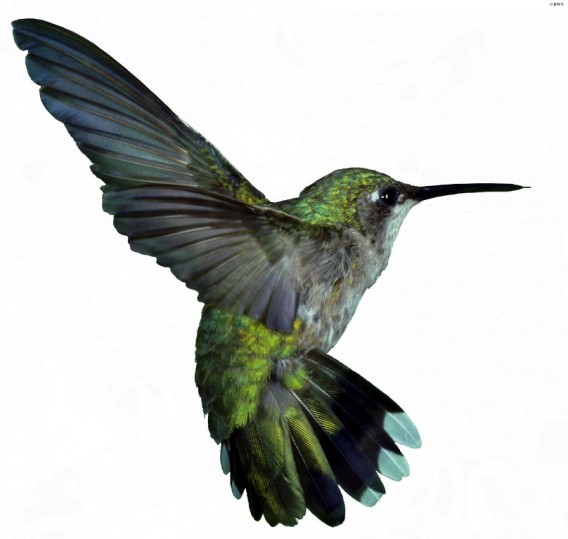
Hummingbirds are very smart and they can remember every flower they have been to, and how long it will take a flower to refill.
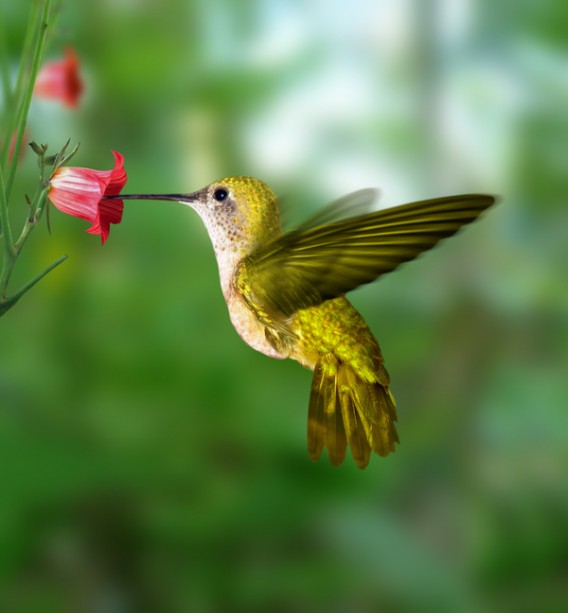
Hummingbirds can hear better than humans
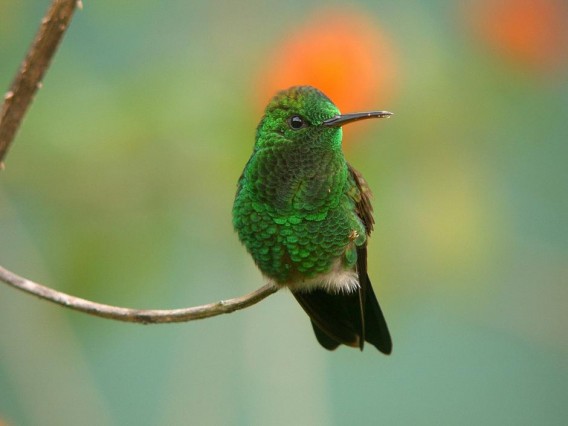
Hummingbirds can see farther than humans.
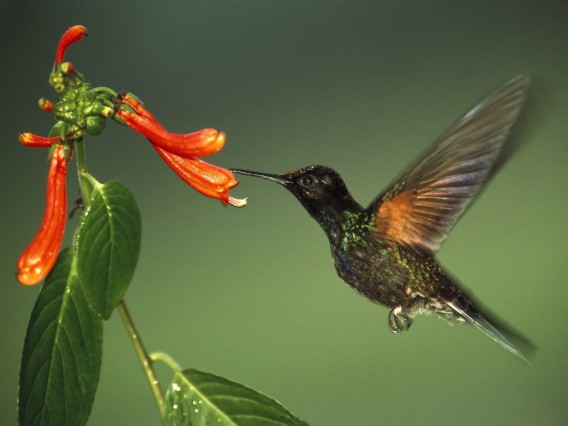
Hummingbirds can see ultraviolet light.
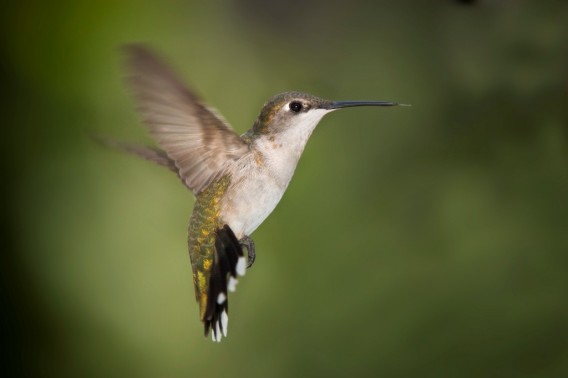
Hummingbirds have little to no sense of smell.
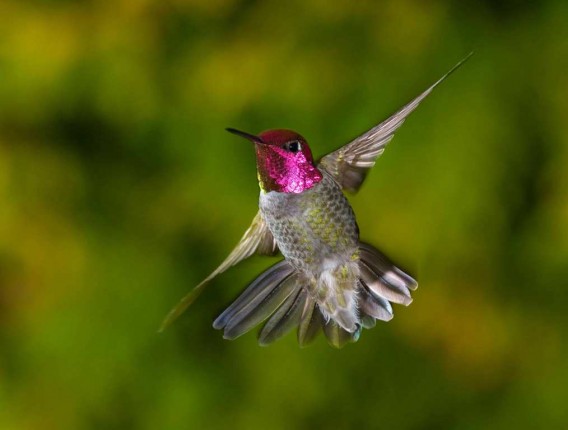
A hummingbird will use its tongue to lap up nectar from flowers and feeders.
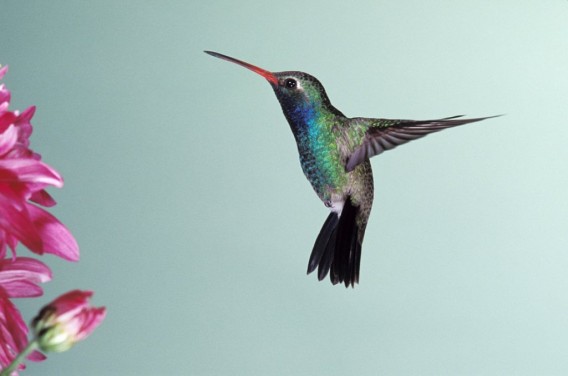
A hummingbird’s tongue is grooved like the shape of a “W”.
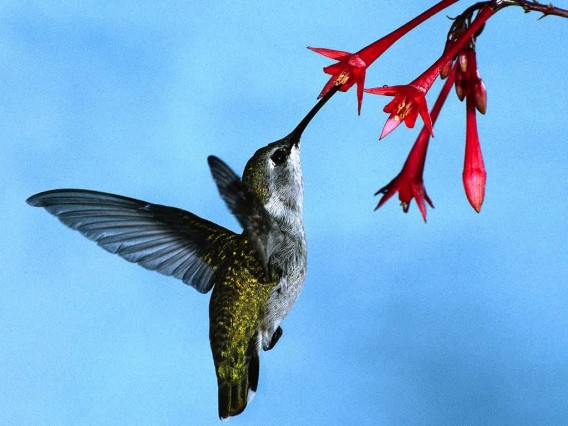
Hummingbirds have tiny hairs on the tip of the tongue to help lap up nectar.
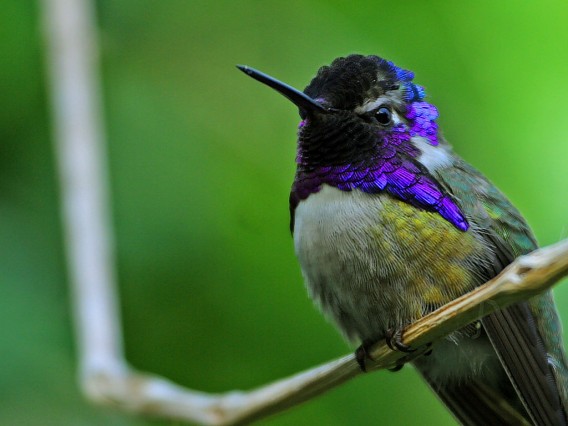
A hummingbird’s beak is generally shaped like any other bird beak, just longer in proportion to its body.
The edges of the hummingbird’s top beak will overlap the edges of the hummingbird’s bottom beak.
A hummingbird’s bottom beak is slightly flexible.
Hummingbirds do not drink though their beaks like a straw. They lap up nectar with their tongues.
A hummingbird’s heart beats up to 1,260 times per minute.
A Hummingbird’s heart beats about 250 times per minute at rest.
A hummingbird’s heart is 2.5% of the total body weight.
A hummingbird will take about 250 breaths per minute while at rest.
A hummingbird’s metabolism is roughly 100 times that of an elephant.
Hummingbirds have very weak feet and can barely walk. They prefer to fly.
